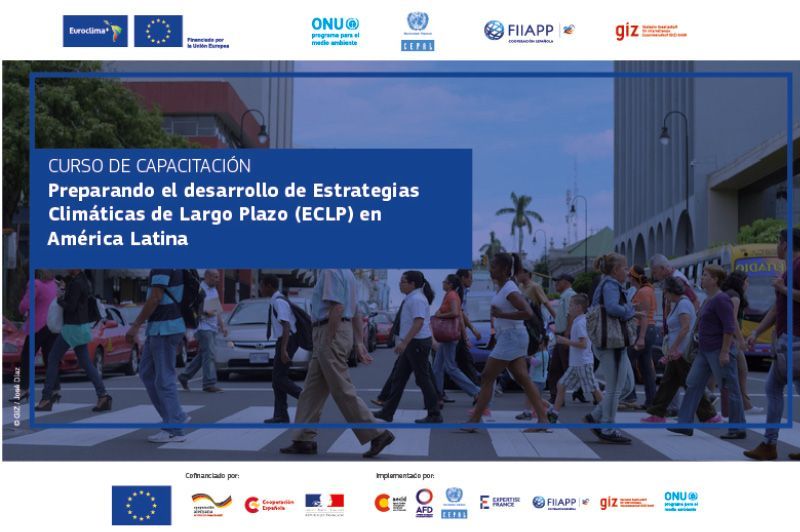It will cover topics such as the design of LTCSs linked to NDCs; formulation of plans and climate action planning in cities.
Brussels, 10 September 2021. Meeting climate goals requires a short, medium and long-term vision to develop strategies and trajectories for decarbonisation and transformation towards sustainable, low-emission development.
In this framework, Article 4 of the Paris Agreement invites Parties to work on long-term strategies to establish a roadmap for framing the NDCs that are updated every five years.
At COP 24 of the United Nations Framework Convention on Climate Change, five Latin American countries: Argentina, Chile, Colombia, Costa Rica and Uruguay, signed a proposal at ministerial level called "Regional Collaboration on transparency and compliance with Nationally Determined Contributions and capacity building for Long-Term Climate Strategies" requesting support from the EUROCLIMA+ Programme to jointly advance in meeting the objectives of the Paris Agreement and in the implementation of each country's NDCs.
Within the framework of this initiative, during 2020 and so far in 2021, the agencies Economic Commission for Latin America and the Caribbean (ECLAC), the International and Ibero-American Foundation for Public Administration and Policy (FIIAPP), the German Society for International Cooperation (GIZ), and UN Environment, in charge of its implementation, have promoted studies and activities to understand the current situation in the countries, as well as the needs and gaps to advance in the development of Long-Term Climate Strategies (LTCS). The analyses and exchanges carried out have made it possible to identify priorities in this area for the development of the capacities of key actors in Latin American countries. Based on these recommendations, the training course "Preparing the development of Long-Term Climate Strategies (LTCS) in Latin America" is being led by GIZ in the framework of the EUROCLIMA+ Programme.
The training course will seek to strengthen technical and methodological competences of stakeholders for the preparation and implementation of Long-Term Climate Strategies in their countries, in line with their national commitments as reflected in their Nationally Determined Contributions (NDCs).
The training process will take place in three completely virtual modules between 28 September and 22 October, with synchronous sessions and asynchronous activities, which will allow participants to learn, exchange and apply their knowledge.
At the end of the course, participants are expected to know the methodologies and tools for long-term climate planning, understand the requirements for defining thematic and sectoral indicators, become familiar with relevant analyses for the definition of long-term adaptation and mitigation targets. Participants are expected to visualise the articulation of NDCs with long-term climate planning, including climate action planning in cities, and become aware of the importance of climate monitoring and transparency systems.
The course has limited places and is aimed primarily at representatives of the public sector (ministries of environment, energy, agriculture, finance, planning), who are involved in the design and implementation of climate policy in their field of work.
The nomination of participants per country will be done through the National Focal Points of the programme.
For more information, contact Claudia Cordero (This email address is being protected from spambots. You need JavaScript enabled to view it.), Paola Vasconi (This email address is being protected from spambots. You need JavaScript enabled to view it.) and Mariana Pizarro (This email address is being protected from spambots. You need JavaScript enabled to view it.).
About EUROCLIMA+
EUROCLIMA+ is a programme funded by the European Union and co-financed by the German federal government through the Federal Ministry for Economic Cooperation and Development (BMZ), as well as by the governments of France and Spain. It aims to reduce the impact of climate change and its effects in 18 countries in Latin America and the Caribbean by promoting climate change mitigation and adaptation, resilience and investment.
The Programme is implemented under the synergistic work of seven agencies: the Spanish Agency for International Development Cooperation (AECID), the French Development Agency (AFD), the Economic Commission for Latin America and the Caribbean (ECLAC), Expertise France (EF), the International and Ibero-America Foundation for Administration and Public Policy (FIIAPP), the German Society for International Cooperation (GIZ), and the UN Environment Programme.

